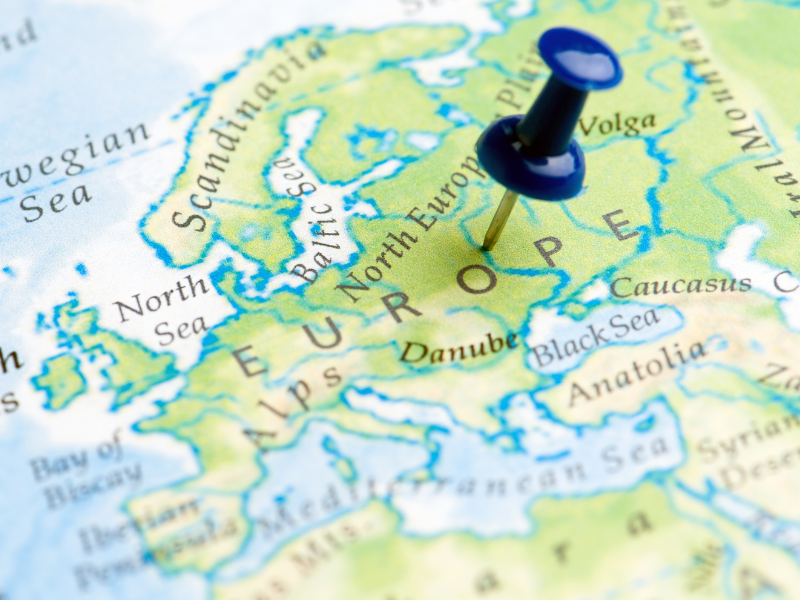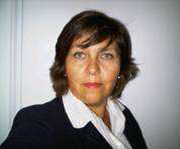Europe revisited
With the departure of the United Kingdom, the debate around a culture of the European Union continues more intensely: does it exist?

Is there only one Europe?
With the departure of the United Kingdom, the debate around a culture of the European Union continues more intensely: does it exist? Geography can help us shed light on this question. In an immense geographical area stretching from Russia to the United Kingdom, where each country has its own culture and specificities, we can try to divide Europe into three cultural zones: that of the seas, that of the dry land. and that of Central Europe.
Europe of the seas and navigators
Western Europe produced the great navigators who took to the sea as one takes to the road to discover the world.
From exploration to trading
To name a few, the Italians, the Portuguese, the Spanish, the French, the Dutch, the British became a people of explorers. Their logic is to go and see what is on the other side of the shore, the Atlantic, the Mediterranean, on the other side of the world.
This is why we can speak of a “ Europe of the seas”. This geographical location has influenced the mentality of the inhabitants to varying degrees: their open-mindedness, their ease of coming into contact with people from other countries, their ability to negotiate and use the word.
The dynamics of money
For these traders, money has become a tool of exchange that moves, circulates, energizes, which is never blocked: it does not sleep, it sometimes lives far from the value that palpable, quantifiable reality could give it, a real product in itself.
One of the most interesting examples of this dynamic is Tulipomania, created by the Dutch in the 17th century.
Even today, this Europe of the seas continues in its multinational companies and fears nothing of the unknown, whatever happens. For this Europe, everything is in motion: it is panta rheiwhich will later be the liberal spirit. Anything goes.
The Europe of vast drylands
There is another Europe which is that of strong anchoring on dry land. Russia, like Germany, stands out from the Europeans of the seas by a completely different logic: they aim to be well anchored in the land, as vast as possible.
We can include in this Russo-German category certain peoples of the East who seek to expand their territory, such as Romania or Ukraine.
Spirit of capitalization
Unlike the previous Europe, these peoples seek to accumulate without necessarily having the commercial reflex to make what they possess grow and rather seek to avoid, to block changes, and sometimes to stop time.
What matters to them is the possession of land, independently of the notion of the dynamics of money, profitability, trade. This will give them a spirit of capitalization and a "realpolitik" favoring having a roof over their heads, a garden to feed themselves, the dynamic of money in itself is of little importance to them.
People of the extremes
These peoples learned to live, survive and relive even when they lost everything like Germany after the Second World War or post-Soviet Russia. They have built another quality of Europe: the strength and the capacity to tighten its belt through difficult times and to rise from the ashes.
In work, these people are capable of going to great lengths, seeming to be the heirs of the punishment of Sisyphus condemned to raise a stone which always falls back and their happiness is in this pride in enduring sorrows and extreme situations.
Like Orpheus seeking his Euridice, these are the people of the extremes both in the descent into hell and in the ascents.
The Central Europe of collective identity and individual courage
We call Eastern Europe the former Eastern bloc which was in the fold of the Soviet Union. This political term has been obsolete since the fall of the Soviet Union and it is appropriate to distinguish a particular space in Europe which is “stuck” between the Europe of the seas and the Europe of the land.
This is central Europe. There we find Poland, the Czech Republic, Slovakia, Hungary, Slovenia, northern Croatia, northern Serbia, but also, in certain aspects, Switzerland.
The character of these peoples was forged by this improbable geographical position: having neither warm seas to navigate and trade nor vast lands to recover in the event of a hard blow, they should have disappeared from the map a long time ago.
Resistance mentality
Instead, their geographical position has further forged among them a logic of “neither…neither: neither for nor against quite the contrary”. They have neither an explorer nor an expansionist mentality, but rather a mentality of resistance, of self-affirmation, of individual courage, of creativity, of criticism.
They resisted all occupations or colonizations while criticizing them, standing up to them. They could only be occupied or colonized temporarily. After almost 130 years of disappearance from the map, Poland is reborn, after 341 years of Ottoman then Habsburg domination, Hungary is reborn, after 1000 years of life in other kingdoms and empires, Slovakia is created in 1993...
Often being the theaters of war, they learned to hold the bar between the West and the East, they trained to fight, which forged their warlike character and identity.
In-depth analyzes and frank reactions
It is the Europe of digestion: they have learned to sort out what to take and what to reject among Westerners or among the peoples of the East, they have a permanent reflex of analyzing the world with its dangers and its interests. The most valuable things they have are their deep insights and frank reactions.
They probe the depths of the soul and the unconscious with Freud, born in Moravia, Ferenczi and Bálint, born in Hungary, Jung, born in Switzerland. They bring a critical eye to any vast and established order with Copernicus born in Poland, Jan Hus born in Bohemia, but also with battles like David against Goliath against the most powerful army in the world in 1956 in Poznań and Budapest and in 1968 in Prague. They are not afraid of anything.
